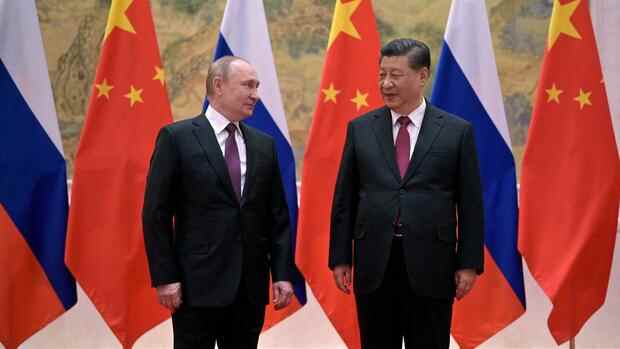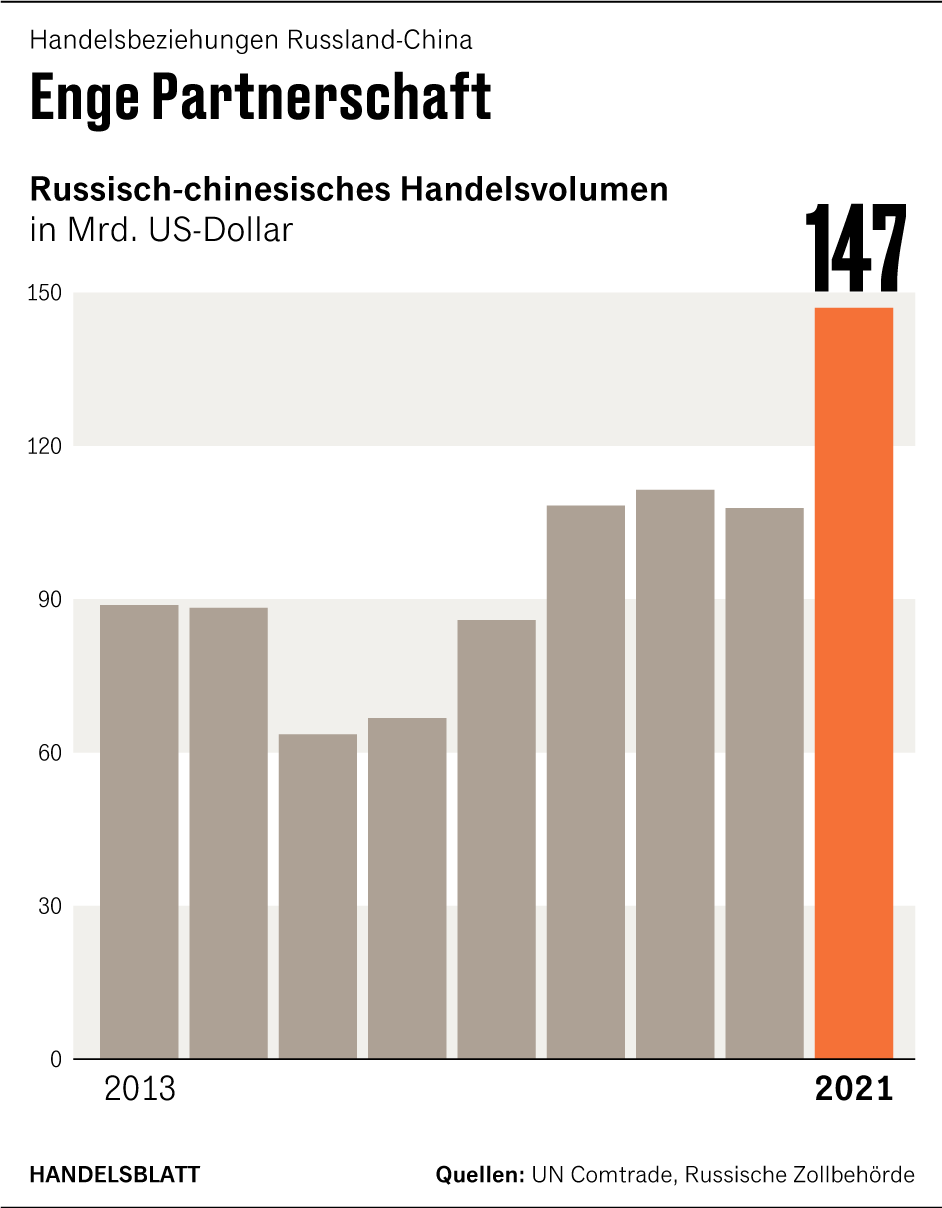The autocrats demonstratively assured unity on all central political issues.
(Photo: via REUTERS)
Berlin They were demonstrative gestures – and statements: Russian President Vladimir Putin and China’s head of state and party leader Xi Jinping assured each other that they would strengthen their cooperation. At their meeting on Friday before the opening of the Winter Olympics in Beijing, they also agreed on projects that could have negative consequences for Europe’s energy supply.
The Chinese head of state and party leader greeted the Kremlin ruler with “Sdrastwujtje”, the Russian “Good day”, but due to the corona virus he did not shake hands.
After their first face-to-face meeting in more than two years, Putin and Xi issued a joint declaration of mutual support – especially against the West: They are together “against the abuse of democratic values, interference in the internal affairs of sovereign states under the pretext to protect democracy and human rights”.
At the same time, they made serious accusations against the western community of states, without naming them: “Some forces, which represent a minority on the world stage, continue to advocate unilateral approaches to solving international problems, engage in power politics and interfere in the internal affairs of other states “, the statement said.
Top jobs of the day
Find the best jobs now and
be notified by email.
Xi and Putin therefore demonstratively supported each other in their respective regional foreign policy conflicts: China declared its “understanding” for Russia’s demand for binding security guarantees from the USA and NATO in the dispute over Ukraine. Beijing also supports Putin’s fight against an expansion of the western military alliance.
>> Read here: The alliance of autocrats – Putin and Xi are moving even closer together
For its part, Russia said in the joint document that it endorses China’s Taiwan policy: Moscow rejects Taiwanese independence “in any form”. The two Pacific Rim countries wanted “a fairer and more rational world order,” Putin’s security adviser Yuri Ushakov said in advance.
In their statement, Putin and Xi underlined against whom this demand is directed: China and Russia are “seriously concerned” about the Aukus security partnership formed by the US, Australia and Britain and warned of the danger of an arms race in the Asia-Pacific region.
The almost four-hour and meanwhile 38th personal conversation between the two autocrats, who were granted the possibility of lifelong rule by the constitution, also demonstrated an even closer rapprochement in the economic area, because both countries see themselves challenged by ever tougher Western sanctions.
Gas deliveries to China
Russian gas giant Gazprom signed an agreement with China National Petroleum Corp. (CNPC) to increase supplies to the country, which is the world’s largest energy consumer. This involves the delivery of a further ten billion cubic meters of Russian natural gas to the neighboring country via a new, third route.
Russia is facing a strategic decision as to whether Gazprom will connect Central Siberian gas fields to the Sila Sibirii (Power of Siberia) pipelines leading to China or to the westbound pipelines.
Overall, the annual gas export by pipeline would rise to 48 billion cubic meters. That’s not very much: an additional 55 billion cubic meters of Russian natural gas are to flow to Europe via the controversial Nord Stream 2 Baltic Sea pipeline alone.
At the same time, the state-controlled largest Russian oil producer Rosneft is expanding its oil supplies to CNPC: in the next ten years, 100 million tons of crude oil are to be pumped eastwards via Kazakhstan.
China is thus increasing its energy supplies from the neighboring country and securing them in a special way. Because Russian oil and gas come overland and not by sea, where these deliveries could possibly be stopped by the US Navy in the event of growing geopolitical tensions.
CNPC also has a stake in Yamal LNG, a liquid gas producer owned by the Russian Novatek group. Liquid gas is to be shipped from the Yamal Peninsula through the previously frozen Arctic Sea north of Russia. Global warming makes these passages navigable or the ice so thin that it is made navigable by nuclear icebreakers.
In order to avoid growing Western economic sanctions, Russia and China also want to deepen their industrial cooperation. More Chinese high-tech products are to replace western imports in Russia. In addition, Russia has asked for the delivery of military early warning systems.
More: The ultimate threat: Russia has the upper hand in the fight for gas – for now


